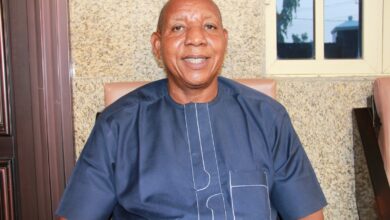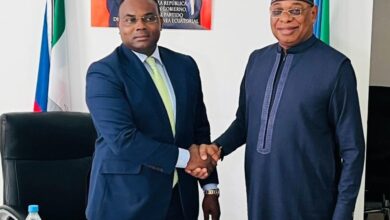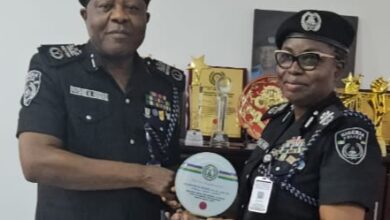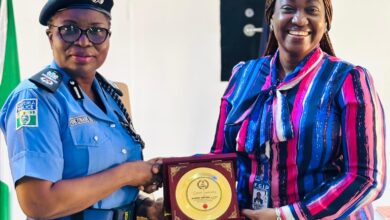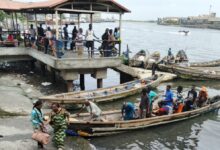
The President General of Maritime Workers Union of Nigeria (MWUN), Prince Adewale Adeyanju has disclosed that the Federal Government would soon pay the disengaged seafarers of the Nigerian National Shipping Line (NNSL) their pension.
This is as the Federal Government and the MWUN conclude verification process for the payment of seafarer benefits after 28 years of liquidation of the national carrier.
Adeyanju made this known at the Association of Maritime Journalist of Nigeria (AMJON) training workshop held in collaboration with the School of Eloquence at the school’s premises in Ikoyi Lagos over the weekend.
Represented by the Deputy President General of MWUN, Comrade Harry Tonye; Adeyanju stated that the union will leave no stone unturned to ensure that the disengaged seafarers get their due pension.
He did not however, give the exact date when the aged seafarers will receive their pensions.
Comrade Adeyanju took the journalists on the rudiments of the operations union and its duties to the workers, saying the Nigerian port industry continues to stable peace because of the Collective Bargaining Agreement strategy put in place to ensure that workers are paid living wage, adding that the agreement is reviewed every two years.
“The good thing about it is that if there is anything that was not captured in the agreement, one can patiently wait for the next two years for it to be addressed,” he said.
On his part, the Dean, School of Eloquence, Ubong Essien tasked journalists to explore and unearth potentials in the Marine and Blue Economy in their reportage.
Essien, who was a former Special Adviser on Media and Strategy to the immediate past Director General, Nigerian Maritime Administration and Safety Agency (NIMASA) Dr. Bashir Jamoh, called on the media practitioners to create wealth for themselves through effective and quality reportage about the Marine and Blue Economy, saying that the sector was under-reported by journalists.
Speaking further on the multiple advantages of the sector, Essien reiterated that the maritime industry is not limited to the ocean or ships, maintaining that the blue economy is vast to the extent that a journalist can choose to specialise on a segment and get the desired relevancy to create wealth.
According to him, journalists can specialise on any given sub sector within the industry, improve on it and create wealth from it.
While commending AMJON for the innovation, the Dean stressed that the school is open for partnership in the area of capacity building for members, adding that journalists must equip themselves with modern day technologies like use of social media, Artificial Intelligence, Google, etc to create the needed awareness for the Marine and Blue Economy growth.
He further described journalism and the legal practitioners as noble professions which in turn has the capacity to enlighten the public about new innovations, thus the professionals must be strategic while engaging critical stakeholders for nation building and economic development.
He also appealed to members of the association to prioritise capacity building as a veritable tool to gain more knowledge.
Describing “knowledge as power”, Essien stated that training and retraining of members of AMJON is a clear indication of wealth creation, urging them not to relent in pursuit of academic abilities and upscaling of their knowledge base.
Resource personnel from the Nigeria Customs Service (NCS), Maritime Workers’ Union of Nigeria (MWUN) and School of Eloquence engaged journalists on the right terminology on their reportage and publications in line with ethics of the profession.
Among the team of MWUN at the training were, Comrade Harry Tonye , Head of Media MWUN, Comrade Oniha Odigie; Comrade Kennedy Ikemefuna.


